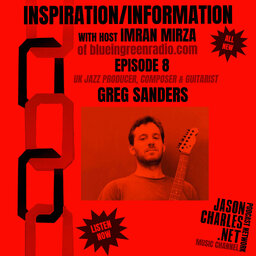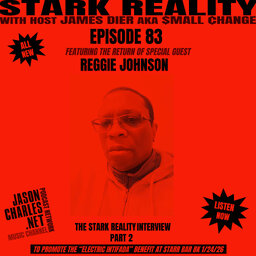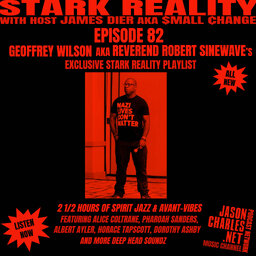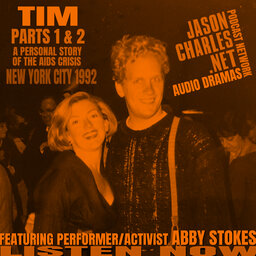TIM featuring Abby Stokes
A two-part podcast featuring author and activist Abby Stokes sharing a story of love and loss during the early '90s AIDS crisis in New York City.TIM PART 2 The Lark Ascending
New York City author/activist/performer Abby Stokes tells the harrowing but beautiful second part of the true story TIM.
"TIM" is an original two-part monologue from author/performer/activist Abby Stokes. She shares her intimate story of love and loss during the early '90s AIDS crisis in New York City. Listen and subscribe to TIM wherever you get your podcasts or live & direct on jasoncharles.net Podcast Network Audio Dramas Channel
For more information about Abby Stokes go to www.abbystokes.com
In 1 playlist(s)
JASONCHARLES.NET PODCAST NETWORK
Music and Arts Podcast Network from New York City. 4 Channels : Over 22 original podcast series. D…Social links
Recent clips

INSPIRATION/INFORMATION with Host Imran Mirza Episode 8 Guest UK Jazz Producer/Composer/Guitarist GREG SANDERS
1:16:43

STARK REALITY Episode 83 Guest REGGIE JOHNSON Returns, for "Electric Intifada" Benefit
1:27:17

STARK REALITY PLAYLISTS Episode 82 GEOFFREY WILSON aka REVEREND ROBERT SINEWAVE's Spirit Jazz & Avant Vibes Head Soundz Mix
2:33:58
 JASONCHARLES.NET PODCAST NETWORK
JASONCHARLES.NET PODCAST NETWORK